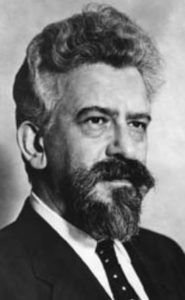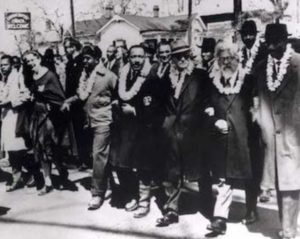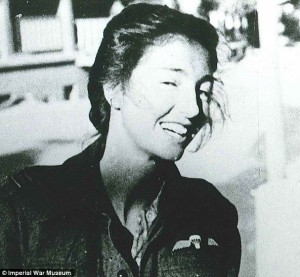Greatest Political Philosopher of the 20th Century

Hannah Arendt in 1924
Johanna Cohn Arendt (1906-1975) was born in Germany to a wealthy family of secular Russian-German Jews. The family was anti-Zionist and assimilationist, desperately seeking acceptance into broader German society. Arendt was well-educated, and was already tackling heavy philosophical works as a teenager. At 15, after getting expelled from her school for organizing a boycott of an anti-Semitic teacher, she decided to go straight to the University of Berlin. Arendt then studied language, literature, and theology at the University of Marburg, where one of her teachers was the famed philosopher Heidegger (the two would go on to have a secret romantic relationship for many years). Arendt later became a towering figure in philosophy herself, writing on politics and sociology, Judaism and feminism (which she opposed, once writing, perhaps presciently: “what will we lose if we win?” Ironically, today Arendt is something of a feminist icon!) When Hitler came to power in 1933, Arendt operated an underground railroad for refugees fleeing Nazi Germany. Realizing the flaws of her old assimilationist ways, she wrote that “Jewish assimilation must declare its bankruptcy.” Arendt immersed herself in Jewish study, while also vocally denouncing the Nazis, leading to her arrest by the Gestapo. After eight days in prison, the Gestapo let her go because they could not decipher her encoded diary. Arendt fled to Geneva, where she worked for the Jewish Agency to secure visas for Jewish refugees. From there, she settled in Paris and soon became the personal assistant of Germaine de Rothschild, taking care of distributing her generous charitable funds. In 1935, Arendt joined Youth Aliyah, eventually becoming its secretary-general. In 1938, she was put in charge of rescuing Jewish children from Nazi-occupied Austria and Czechoslovakia. When the Nazis occupied France, Arendt and her family managed to escape yet again, eventually finding their way to New York. In 1944, she was hired as executive director of the Commission on European Jewish Cultural Reconstruction, cataloging and preserving Jewish assets in Europe, and reviving post-war Jewish life there. From 1951 onwards, she devoted herself to teaching and writing. Her most acclaimed books followed, including The Origins of Totalitarianism and The Human Condition. Arendt taught at a number of American universities, including Yale and Stanford, and was the first female professor at Princeton. In 1961, she spent six weeks in Jerusalem covering the Eichmann trial for the The New Yorker. (During this time, she coined the phrase “banality of evil”, and her conclusions were immensely controversial.) All in all, Arendt wrote hundreds of penetrating essays, articles, and poems, and has been described as the most influential political philosopher of the 20th century, as well as one its most enigmatic women. The Library of Congress estimates that at least 50 books have been written about her, along with over 1000 scholarly papers. There is a “Hannah Arendt Day” in Germany, as well as an international peer-reviewed journal called Arendt Studies, along with countless things named after her, including the prestigious Hannah Arendt Prize.
Words of the Week
“If one is attacked as a Jew, one must defend oneself as a Jew.”
– Hannah Arendt



